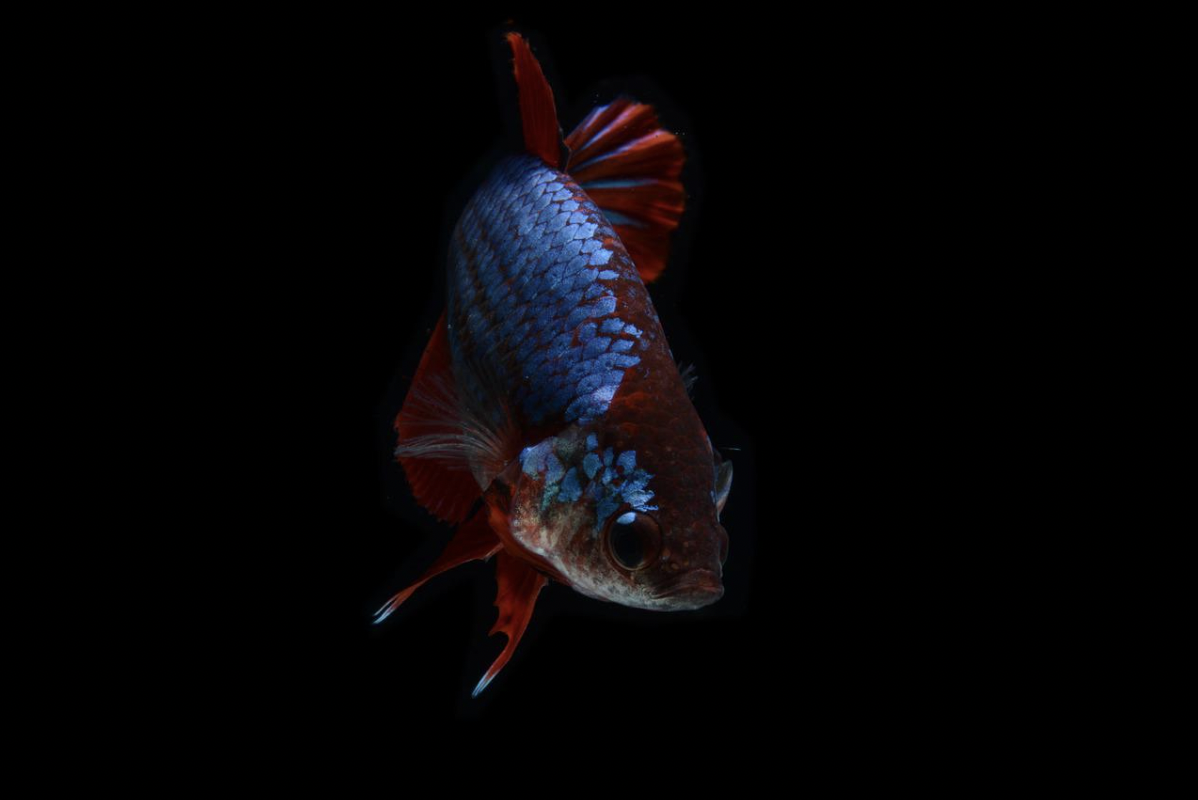
There are many different kinds of betta fish. In addition to the standard male and female betta fish, there are also many hybrid forms such as the Galaxy Betta, Pearl Betta, or VeilTail Betta. Each of these subspecies has its own unique features and characteristics. However, each type of betta fish also poses a unique set of challenges for owners. The care requirements for male vs female bettas differ in several key ways. Male galaxy koi betta tend to be much more aggressive than their female counterparts, which makes housing them together in the same tank almost impossible. Male betta fish also have shorter life expectancies than female bettas due to their more aggressive nature, which means they are more prone to contracting illness and dying younger than female Bettas. We’ll talk about all of that below.
Easy Navigation
What are the basic requirements of a male Galaxy Betta?
The Galaxy Betta is a type of Siamese fighting fish. This subspecies of betta is native to warm, tropical regions. They are hardy fish and can be kept in unheated aquariums, but they require at least 6 hours of direct sunlight per day. Galaxy Bettas should be kept in a tank with plenty of open space and lots of plants. Males are very territorial and will fight each other if they are kept in too small a tank. A 20-gallon aquarium is a good minimum size for two adult Galaxy Bettas. Galaxy Bettas need a well-aerated aquarium with a powerful filter and frequent water changes. They are messy fish and produce a lot of waste, so weekly water changes are essential to prevent water quality from deteriorating.
How often should you change your Galaxy Betta’s water?
Galaxy Bettas produce a lot of waste, so their water needs to be changed frequently. Ideally, you should change and refill your betta’s tank water once per week. If you don’t have the time to do weekly water changes, you can reduce the frequency to once every other week. If you don’t do any water changes at all, then your water quality will decline rapidly and your betta will suffer. Changing the water also helps to prevent diseases caused by poor water quality from developing. So you should clean the water in your betta’s tank every week no matter how much time you have.
Weekly Care and Maintenance for Your Male Betta
– Betta fish are finicky eaters. If your male betta isn’t eating, you’ll need to try different types of food until you find something he likes. High-end betta foods are specially formulated to provide all the nutrients that your betta needs while reducing the likelihood of bloating and other digestive issues. Some common brands include Omega One, Healthy Habit, and Tetra Betta Food. You can also make homemade betta food by grinding up pellets or flakes and mixing them with warm water.
– Your betta’s aquarium water needs to be clean and well-aerated. Weekly water changes are the best way to keep your betta’s water clean and healthy. However, you will also want to clean the aquarium itself once per week. This will remove debris that can collect at the bottom of the tank and provide a space for bacteria to grow.
– Your betta fish probably isn’t a cuddly companion, but you should still handle it from time to time. Male Galaxy Bettas can be aggressive towards humans, but regular handling can help to reduce aggression in some cases. Regular handling will also help you to spot illnesses early and make appropriate medical treatment more likely.
Weekly Feeding for Your Male Betta
– Your male betta fish’s diet should consist mostly of protein. This can be achieved by feeding your betta freeze-dried bloodworms or brine shrimp several times per week. Alternatively, you can feed your betta high-quality betta pellets.
– Feed your betta only as much as it can eat within a few minutes. Any uneaten food should be removed from the tank to prevent it from contributing to water quality and decaying.
– A growing betta fish will need more food than a settled fish of the same species.
Conclusion
The Galaxy Betta is a popular subspecies of Siamese fighting fish. Galaxy Bettas are hardy, active fish that need both space and frequent water changes. They are messy fish and produce a lot of waste, so you will need to clean the tank and change the water frequently. Your male betta fish also needs plenty of space and a varied diet to stay healthy and happy.